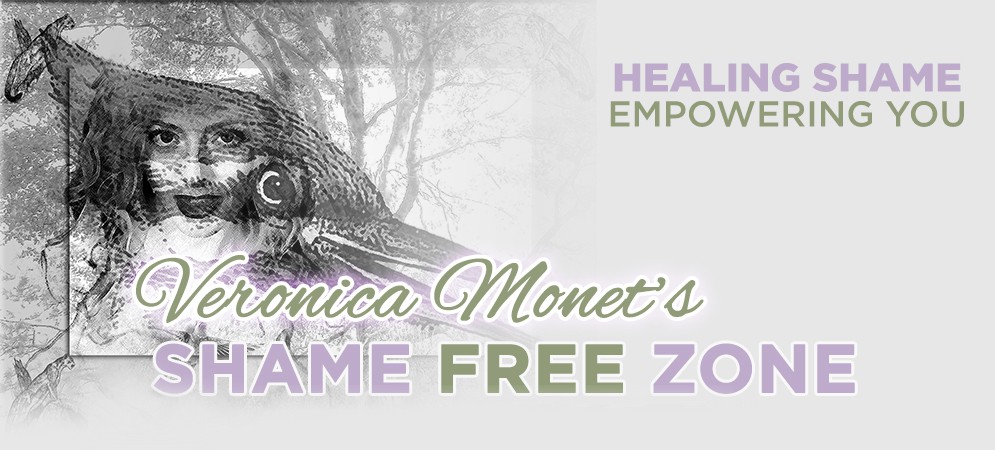
The Two Lives of an Olympic Runner
“Bizarre, salacious and inexplicably careless” – these are just a few of the judgment-laden phrases that presently swirl around Suzy Favor Hamilton, a woman some have called the greatest athlete in University of Wisconsin history.
What has changed public perception of this Olympic runner and winner of nine NCAA championships for the UW-Madison? What has suddenly changed her from an admired icon to a target of ridicule and vilification?
A disgruntled client exposed Favor Hamilton’s secret life as an escort and public reaction to the shocking news has reduced her to a fate familiar to sex workers the world over – she is being ostracized, stripped of her worth and dignity.
Most are surprised that a successful athlete, wife and mother chose to have sex with strangers for money. It can be difficult to understand how any woman would choose prostitution, especially when she has so many amazing accomplishments and resources at her beck and call. It does not appear that her financial life was in peril. Why in the world would any sane person risk so much to engage in something which seems so degrading?
And yet, though Suzy Favor Hamilton’s choices may appear to be incomprehensible, she is far from alone. It is an inescapable fact that many otherwise “normal” women with a multitude of options at their disposal are in fact choosing to become prostitutes. For instance, research scientist Brooke Magnanti, supplemented her income while completing her doctoral studies by working as a London call girl. She wrote of her escapades in a book which became the Showtime cable series, Secret Diary of a Call Girl. Victoria Thorne held two professional positions, that of police officer and prostitute, until her conviction for prostitution in 2009. Like Suzy Favor Hamilton, both of these women were capable, accomplished and upwardly mobile. Why would they resort to prostitution?
Sports columnist for the Wisconsin State Journal, Andy Baggot, expressed conventional wisdom when he wrote “Favor Hamilton, a wife and mother, indulged in a lifestyle that can’t be excused any more than it can be explained in a rational manner.”
But is he correct? Are the choices of these women and thousands of others whose names never make it to the headlines, truly insane? Or is it possible that their behavior can be explained rationally?
Most would agree that being a prostitute is an all together negative proposition. Who in their right mind would wish such a fate on any female person they care about?
Yet, perhaps it is this assumption which leads us away from the truth.
What if we were to investigate the perspective of those women who have chosen to engage in prostitution? While many if not most people might hate working as a prostitute, is it possible that the profession could be enjoyable for some people? Could there be something about prostitution that some prostitutes find attractive? Could there be something about the profession that is pleasing, alluring or otherwise positive for them?
While all prostitutes share the act of selling sex for money as a defining element of their profession, the actual circumstances and nature of their work vary considerably. Today’s prostitutes are far from a homogenous group. Some obtain clients from the stereotypical street corner, while others work in five star hotels and luxurious penthouse suites. Some offer primarily “vanilla” sex, some provide BDSM services, and some are experts in sacred and tantric sexual practices.
Given the huge discrepancy in working conditions, it seems only reasonable to acknowledge there are vastly differing experiences as well as explanations for the decision to engage in prostitution.
The athlete, the scientist, and the police officer mentioned above all share the luxury of having a choice in the first place. None of them is destitute or disadvantaged or otherwise limited in their capacity to choose. In fact, Suzy Favor Hamilton, Brooke Magnanti and Victoria Thorne seem to have invested considerably in their respective career choices, carefully crafting professional paths designed to optimize their level of satisfaction and fulfillment. Given the nature of these women’s other life choices, it seems logical to assume their decision to become a prostitute more likely involved logical and practical considerations as well.
Most of us have been told that prostitutes suffer from low self-esteem. But the facts seem to point away from such popular stereotypes. Dr. Suzanne Jenkins’ Keele University thesis, “Beyond Gender: An Examination of Exploitation in Sex Work” reports that 72% of escorts feel their self-esteem is higher because of their work. Jenkins’ study also shows that 72% of escorts like their work for the independence, 67% for meeting people and 93% for the money.
Other prostitutes who have spoken candidly about their choice to engage in the trade, have listed empowerment as a number one benefit. Some point to the added economic power. Others speak almost glowingly about the positive treatment accorded them by their clients. Freedom and a sense of adventure also seem to rank high, as does the opportunity to take more control over their interactions with men in general.
To be sure, these are not the sort of fringe benefits usually associated with prostitution. In fact, it flies completely in the face of what most of us “know,” or think we “know,” about prostitution.
While society certainly heaps denigration on prostitutes, is it possible that the actual act of exchanging sex for money isn’t degrading for some prostitutes? Could it be that adults have the mental and emotional capacity to decide what type of sex they want to engage in, with whom and for what purpose? Might we also honor the right of adults to arrange for the exchange of goods or services or cash in exchange for sex? And if not, what is the rationale which drives our reluctance to do so?
Will society suffer if sex is allowed to become the province of individual preferences? Certainly we must enforce safeguards for minors, but when it comes to what happens between consenting adults, is it anyone else’s business?
We fear what we don’t understand and certainly as long as prostitution is framed by stereotypes and taboo, it invites some of our deepest fears. What if our daughters, our wives, or our mothers resort to prostitution? What if schoolteachers also worked as prostitutes? Wouldn’t that erode the very fabric of society?
In fact, a school teacher was arrested for prostitution in 2003. Shannon Williams, a Berkeley high school teacher, was a media sensation after news of her arrest spread, spawning many philosophical discussions about the implications of a prostitute being allowed access to children. Melissa Petro was fired from her schoolteaching job because she admitted to being a call girl years before becoming a schoolteacher. The consensus seems to be that even former prostitutes pose some sort of threat to the safety and well-being of children. But are women who get paid for sex more dangerous than women who have sex for free?
Despite the abundance of sexual images (and perhaps even because of them) sexual shame drives our economy and infects our lives. It distorts our relationships and cripples our ability to experience ourselves as whole. Women, especially, are penalized by what is often referred to as the Whore/Madonna Complex – a syndrome that creates desire for a sexual partner who has been degraded (the whore) while making desire for the respected partner (the Madonna), taboo. Although the Whore/Madonna Complex may seem outdated, clinical psychologist, Uwe Hartmann, stated in 2009 that it “is still highly prevalent in today’s patients”.
Can we comprehend the price we pay when sexual shame predominates? Any culture or society which enforces a sexual double standard and refuses to accord half the population their sexual birthright, is a culture that cheats all of us.
Many anthropological studies have established that societies with a more permissive attitude toward female sexual behavior are in fact more peaceful societies. This is true for the Mosuo in China, and the Zapotec of La Paz, Mexico. It is also true of our closest non-human relative, the bonobo. Yet the sexual double standard persists in the dominant world culture.
Over the years, many women with impressive professional careers have confessed to me their secret fantasies about working as a high priced escort. And in their eyes I have seen an all too familiar sadness that seems to communicate a desire so taboo and potentially dangerous it must never be spoken or acknowledged. Instead, it lives hidden deep in the hearts and psyches of women like a relic from our ancient past – a time long ago when women experienced their sexual power without apology.
The suppression of our sexual wholeness leads to all sorts of dysfunction including depression, anxiety and rage. It fuels the war between the sexes and the resulting animosity and mistrust feed into our violent responses to life’s frustrations and challenges. Ultimately, a negative and controlling approach to sexuality in general and women’s sexual autonomy in particular, contributes to the desecration of our planet and our ability to survive through the raping of the environment and the many wars which have plagued the human species for millennia.
If each of us examines our fears and assumptions, we may find what we truly fear is not sex workers, but our own sexual secrets and frustrations. It is so human to project onto others what we are afraid of in ourselves, and prostitutes make a convenient target for scapegoating. Fortunately, some individuals are coming forward to express perspectives which embrace a more accepting attitude toward prostitutes.
For instance, Stanley Siegel, psychotherapist and former Director of Education and Senior Faculty member of New York’s renowned Ackerman Institute for Family Therapy recently wrote in an article for Psychology Tomorrow Magazine:”The sex workers I spoke with, as well as some I have been with, share many of the same positive values and ethics as therapists. Both psychotherapists and sex workers have guided me, at different times in my life, to a deeper understanding of my true desires, partly by challenging me to confront shame.”
Even Fox News’ controversial psychiatrist and social commentator, Keith Ablow, asserts”. . . it is time to legalize prostitution, put in place safeguards to help protect those who participate in it, and, of course, tax it.” While I don’t entirely agree with his decree (I am after all in favor of decriminalization instead of legalization in the USA) I do appreciate his more practical approach to prostitution.
Despite the torrent of headlines surrounding Suzy Favor Hamilton, the fact that some professional women work on the side as prostitutes is not really news. What is getting our attention and upsetting the status quo, is how “normal” this new type of sex worker is. Blending into society with ease, many of today’s prostitutes are adventurous entrepreneurs with their own unique view of human sexuality. For some women, prostitution may represent nothing more than supplemental income. For others it may feel like a sacred calling to provide sexual healing.
In the 2012 award winning movie, The Sessions, actress Helen Hunt gives us a window into the level of compassion and service expressed in sex surrogacy. Yet that commitment to service can be found in prostitution too. Another recent film, The Scarlet Road, is a moving documentary featuring sex worker and activist, Rachel Wotton. It reveals an entirely different attitude toward prostitution in countries such as Australia, which have legal or decriminalized prostitution. There, sex workers have organized Touching Base; a non-profit group that provides sex workers training, resources and information about disability while enabling people with disabilities to connect with trained sex workers.
I am not suggesting that all prostitutes are interested in being of service to their clients. There are all kinds of prostitutes, just as there are all kinds of people who become athletes, scientists, teachers, and police officers. But being of service certainly is a guiding principle for some people in some professions – even prostitutes. And given the wide variety of logical and even altruistic reasons for engaging in prostitution, it may be time to stop attributing all sorts of evil to the women who choose to work in prostitution.
Maybe prostitutes are, after all, people too.








